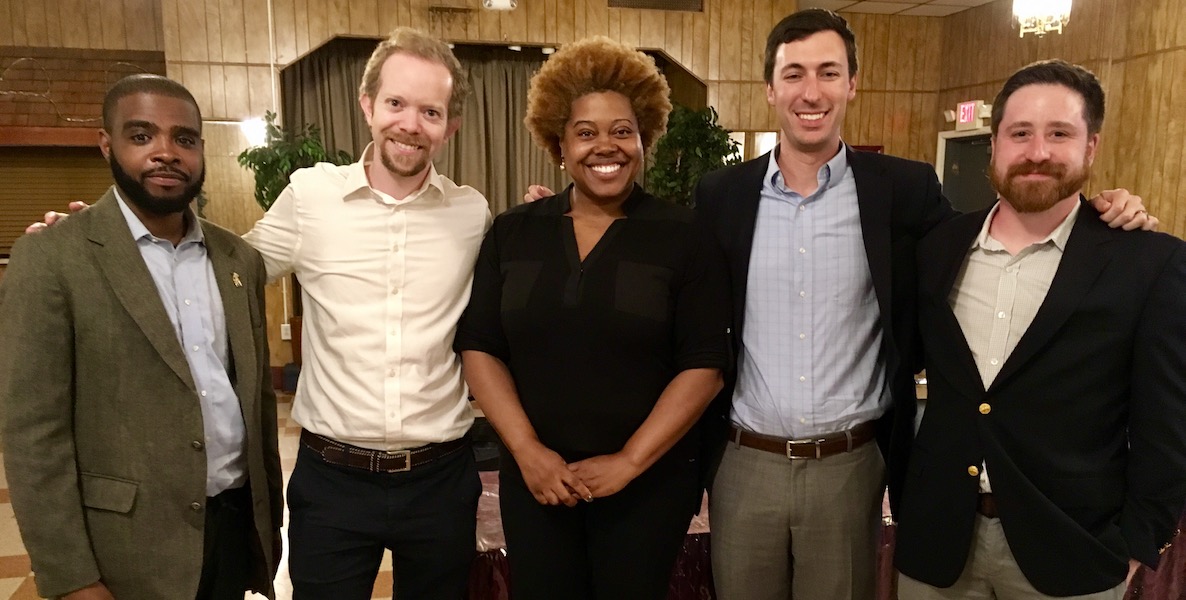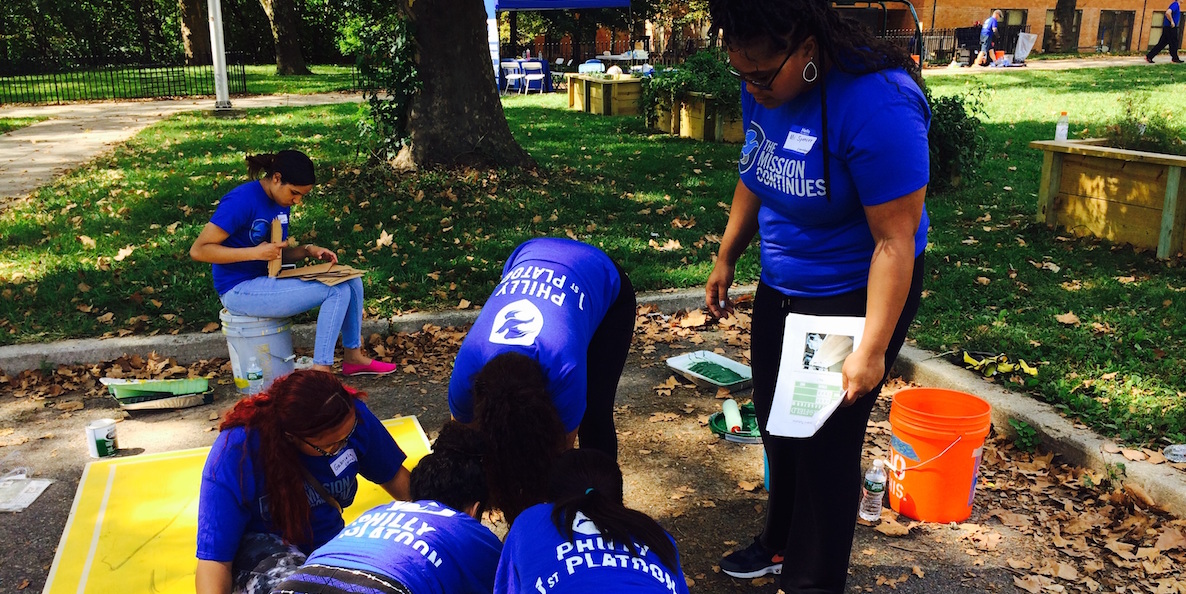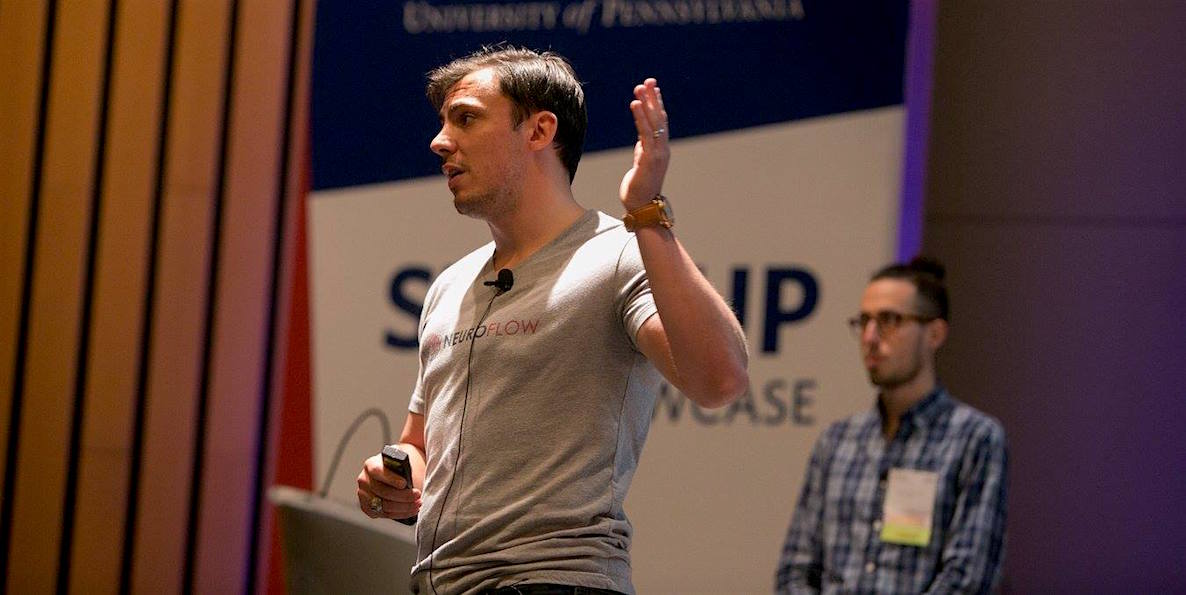When NeuroFlow CEO and founder Chris Molaro started his mental health technology company in 2016, he was hoping to put a dent in a problem that he witnessed all too often: Post traumatic stress among military veterans.
A West Point (and later Wharton) grad, Molaro served in the Army for six years—including a tour of duty in Iraq—before leaving with the rank of captain. Though he himself never suffered any long term PTSD, he knows many young soldiers who came home suffering from the effects of war—something that afflicts some 20 percent of Iraq War vets, according to the Veterans Administration. And he was disturbed by what he considered a lack of urgency from the VA and civilian medical establishment to help those men and women—a factor in the 20 veteran suicides across the country per day.
![]()
Now, Molaro has a chance to change all that. NeuroFlow’s app, a health integration platform that allows patients and health care providers to keep in contact between appointments, is being used by 125 clinics and hospitals around the world—including, through a $225,000 National Science Foundation grant, the Corporal Michael J. Crescenz VA Medical Center in Philadelphia. The NSF grant is paying for a pilot program at the VA, which could lead to a $750,000 grant to expand to VA centers across the country.
This all signals a huge expansion—and a pivot—for the Philly startup since The Citizen last chronicled them a little over 18 months ago. (“I get chills every time I look at the growth graphs,” Molaro notes.) At that time, Molaro had just launched three pilot programs that focused on biometrics—using a headset to collect brain data through measurables like cranial blood flow, electroencephalogram (EEG) readings, and brainwaves. The idea was that this data could help providers integrate behavioral and physical health.
“We know for a fact that mental health affects physical health, and vice versa,” he says. For example, it’s estimated that one-third of people with chronic illness will also deal with depression. The reverse is also true—those with depression are at a higher risk for many physical illnesses.
Developing robust methods for data collection on mental health is still central to NeuroFlow. But now, the company is focused on using the results of those first pilots to launch an app that allows users to conduct their own readings at home through their smartphones, rather than through wearables. The app also allows providers to engage remotely with their patients.
The time between appointments is often unproductive, or even can set patients back. Molaro likens it to physical therapy: “There’s the expectation that you’re going to do a lot of work and exercises between appointments, and if you don’t do that work, you’re not going to get better.”
This works to solve a longstanding conundrum of the mental health field. For patients who seek treatment, the time between appointments is often unproductive, or even can set them back. Molaro likens it to physical therapy: “There’s the expectation that you’re going to do a lot of work and exercises between appointments, and if you don’t do that work, you’re not going to get better.”
NeuroFlow’s services allow providers and patients alike to approach these issues in a more systematic way. Among other things, the app allows patients to self-report the exercises that they do, such as journaling or a meditation. It also measures physiological data, such as heart rate. All of this goes directly to the provider, who can track their patients’ progress.
![]()
If the patient hasn’t logged in in a while or if the data is worse than usual, the app might suggest emergency resources like a text crisis hotline. This takes the pressure off of the patient of having to check in and take the necessary steps to address a worsening crisis, something that can be exhausting in that context. In a way, NeuroFlow allows patients to know that they don’t have to do all the work alone.
Molaro has now expanded his vision beyond just veterans. “What we confirmed over the past 18 months is that mental health is not just a veteran issue,” he says. “They are a minority in the millions of Americans who suffer from depression, anxiety, and even PTSD.”
Molaro has also learned a lot more about the market—specifically, that access to care and adequate engagement are huge barriers in mental health. About 44 million American adults suffer from mental health issues in a given year, according to the National Alliance on Mental Illness. This leads to loss of income, social status and even lives—suicide is the second leading cause of death among Americans aged 10 to 34.
![]()
Fewer than half of people with mental illness seek care—even Molaro says, those who have been referred to a therapist by a primary care provider. There are a variety of reasons for this—stigma, associated cost, interminable waitlists. As a socially-minded entrepreneur, Molaro sees his mission as helping to bridge that gap, making it easier, faster and less onerous for people needing help.
The idea has caught on among funders, as well. Since its launch in 2016, the company has raised nearly $3.25 million, including more than $1 million from investors led by NJ JumpStart this September. The funds have gone towards expanding the team (they began at four, and are now 17), and to developing their two products: EngageBH for mental health specialists and their patients, and IntegrateHealth for medical practices like the VA.
“Mental health is in an exciting time right now,” says Molaro. “For the first time, it’s getting the attention that it deserves.”








